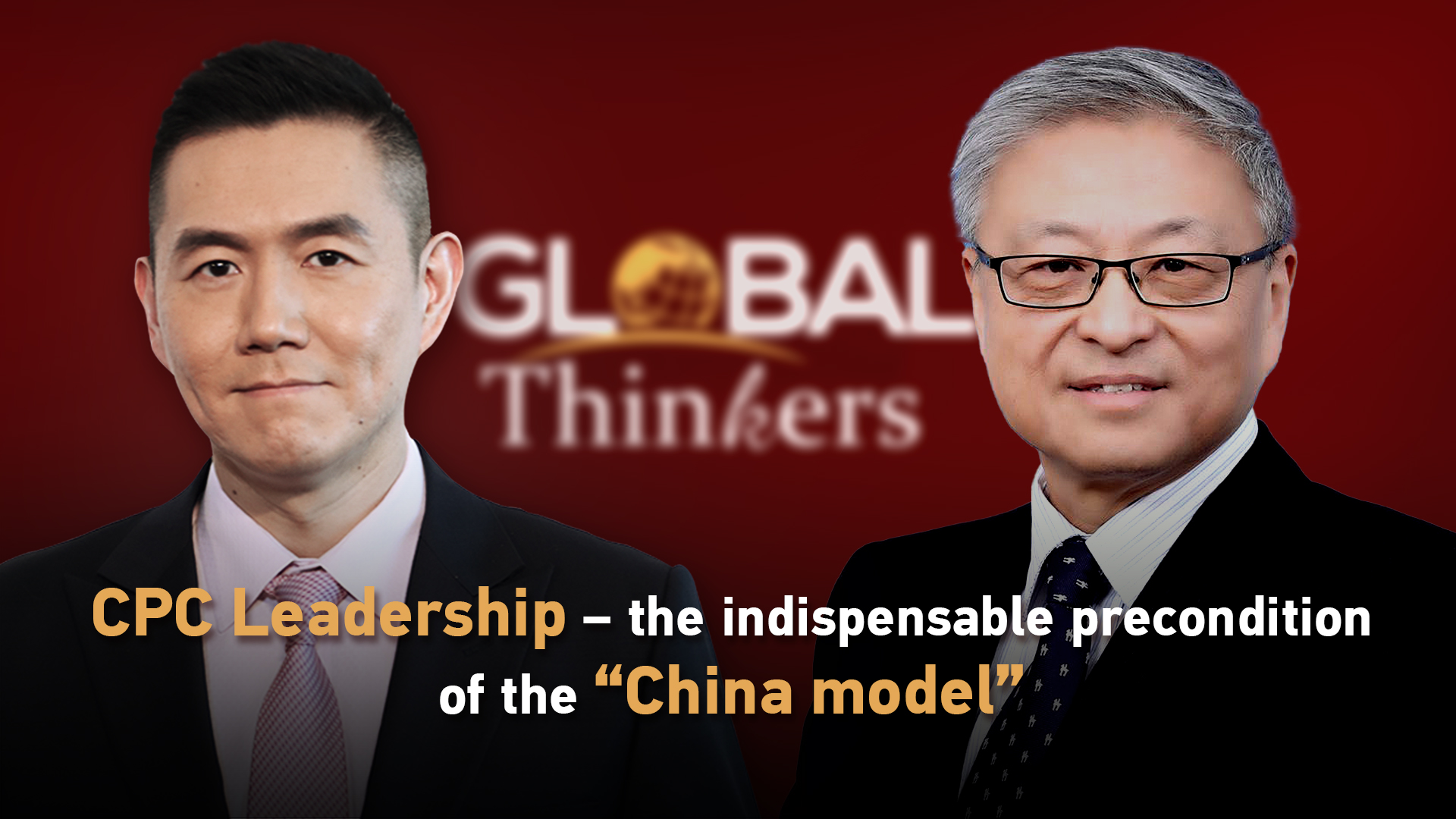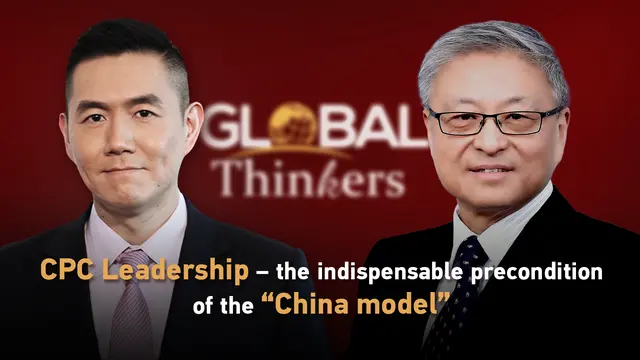07:08

Editor's note: CGTN Anchor Wang Guan sat down with Yan Xuetong, Dean of the Institute of International Relations at Tsinghua University. Yan Xuetong said that China's achievement is based on an indispensable precondition: the leadership of the Communist Party of China (CPC). China's reforms have taken place continuously according to changes in objective conditions, its path guided by Chinese characteristics and circumstances. As the "China model" is the product of a unique combination of factors, it cannot be copied, exported or transplanted. It does, nonetheless, have a valuable role to play as a reference point for other countries wishing to explore paths to development that accord with their own objective conditions.
Wang Guan: This year marks the centenary of the Communist Party of China. Do you think there's such a thing as a "China model", and in what ways do you think this "China model" could perhaps inform developing countries?
**Yan Xuetong: **Well, I think the Chinese government has clearly stated it has no intention to export China's model. So from my understanding, China's model is defined as a kind of approach of development with Chinese characteristics. So this kind of achievement is based on a very, very important precondition: the Chinese Communist leadership.
From my understanding, except China, you cannot find any country that has this precondition. That means you cannot find any country that has a Chinese Communist leadership. Without that precondition, I don't think these countries can follow the Chinese model. Second, that model is with the Chinese characteristic. This means that if that country has no Chinese characteristic, then they cannot copy this model.
Wang Guan: But no matter how many times Beijing says it doesn't intend to make the rest of the world Chinese. It doesn't want to export its political systems. Many in the West simply don't buy it.
**Yan Xuetong: **I think you're absolutely right. And some people think the BRI is an approach to export China's model. Actually, if they examine the BRI project, they will find that, first, all of the BRI projects are bilateral rather than multilateral. Why? That means that you cannot make this kind of cooperation multilaterally. So if everything is bilateral, I doubt you can make it universal.
And so I firmly believe that the Chinese model is very, very special with special characteristics. And the question is not whether China wants to export or not. The question is whether another country can copy it or not. It's just like you find a student that did very good on his exam, but his way to do the exam cannot be copied by anyone else because he did it in a very special way.
**Wang Guan: **A lot of uniqueness.
**Yan Xuetong: **Yes, the unique model is there.
**Wang Guan: **How would you clarify or put into words some of the unique Chinese characteristics that you keep emphasizing?
**Yan Xuetong: **I think the uniqueness of a Chinese model is that they adjusted the policy or the governance according to changes as quickly as possible. And this is really difficult because whenever a government adopts a political principle, it's difficult to abandon it or to change it or reform it. But Deng Xiaoping strongly argued that no, we have to do that, and we have to reform this country continuously, endlessly according to the changes of the objective environment. So, I think this is really difficult for other countries to copy. Deng Xiaoping even has a well-known saying, no matter what the color, white or black, what only catches the mouse is a good cat. I doubt any other foreign government would like to use this or a metaphor for them to guiding their political principles.
**Wang Guan: **Francis Fukuyama wrote an article back in March, lamenting the rigidity of the American system. It's very hard to sell the ideas of the political Right to the Left. It's very hard to convince the liberals of the right wing values. Such is the rigidity of the U.S. system.
Yan Xuetong: So, once some people asked me, what's the difference between the Chinese concept of legitimacy and the American concept? I said that for Chinese, legitimacy does not mean the process, it means the result. If you do something good, the result is good. This is legitimacy. But in the U.S., it is the opposite. They say, no, no, no. The process should be legitimate, not the result. For Chinese, they are concerned that if you have a good process but which then brings a bad result, so what?
Wang Guan: Very different ideologies and very different value systems, I would say. You and your team are putting together the World Peace Forum to talk about U.S.-China post-COVID security cooperation. Tell us more about that. How do you think COVID-19 will shape global geopolitics, especially when it comes to China and U.S. in the security area?
Yan Xuetong: Actually, COVID-19 has blocked the whole world and stopped person-to-person contact, and without person-to-person contact diplomacy cannot achieve its fundamental role. And so now people call this virtual diplomacy either as "microphone diplomacy" or "code diplomacy". Biden's recent person-to-person diplomacy in Europe achieved some results and has made people realize that diplomacy must be carried out with the approach of people to people. You cannot rely on website diplomacy to settle problems or improve the relationship or unite or consolidate the relationship.
And besides that, COVID-19 also blocked people-to-people contact at the social level. Without people-to-people contact, there's no cooperation. That's just how it is. We never talk about human cooperation on the moon, because there's no humans there, right? So now I think COVID-19 has really made anti-globalization move forward rather than to push for or resume globalization.
 简体中文
简体中文



